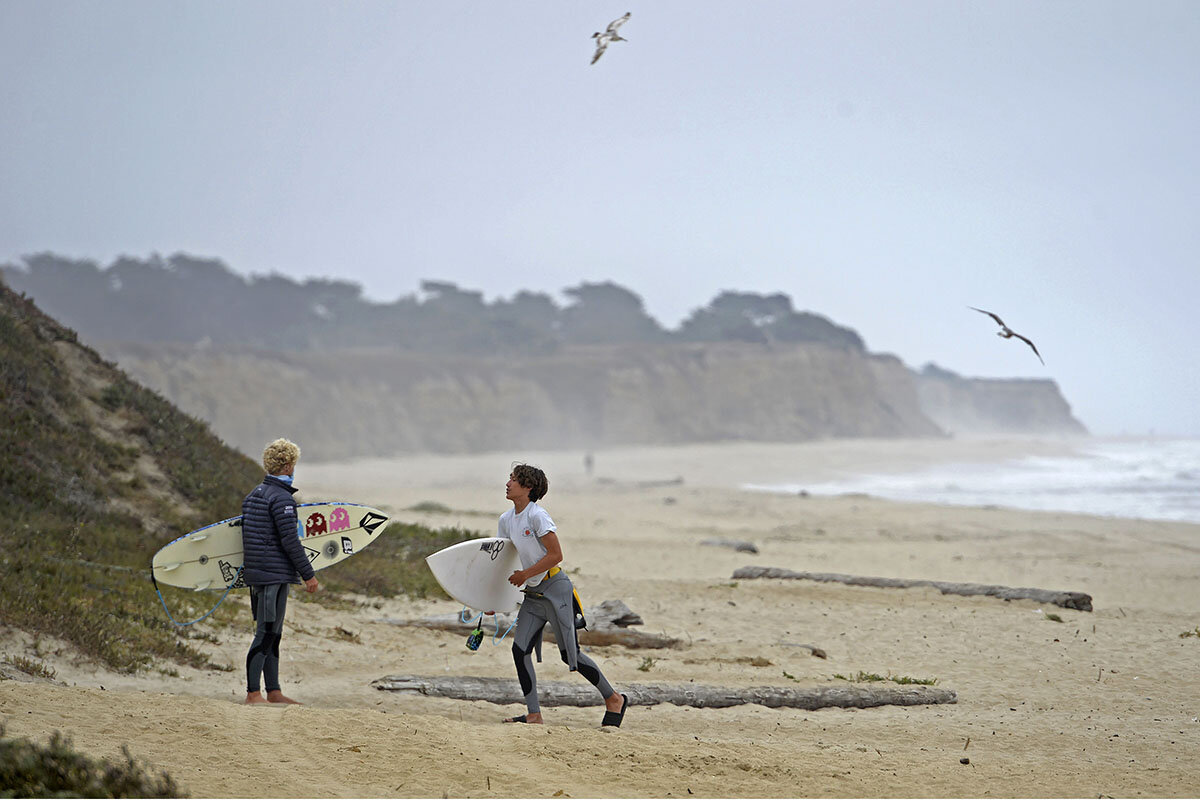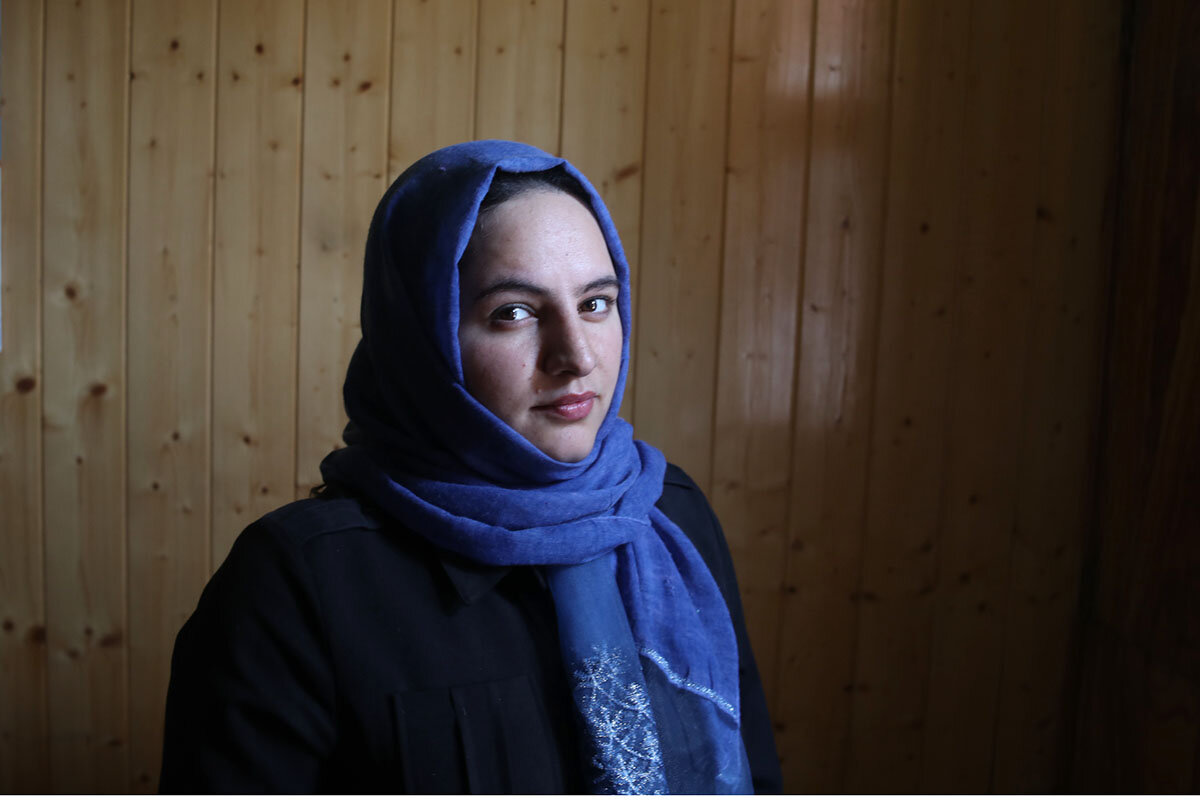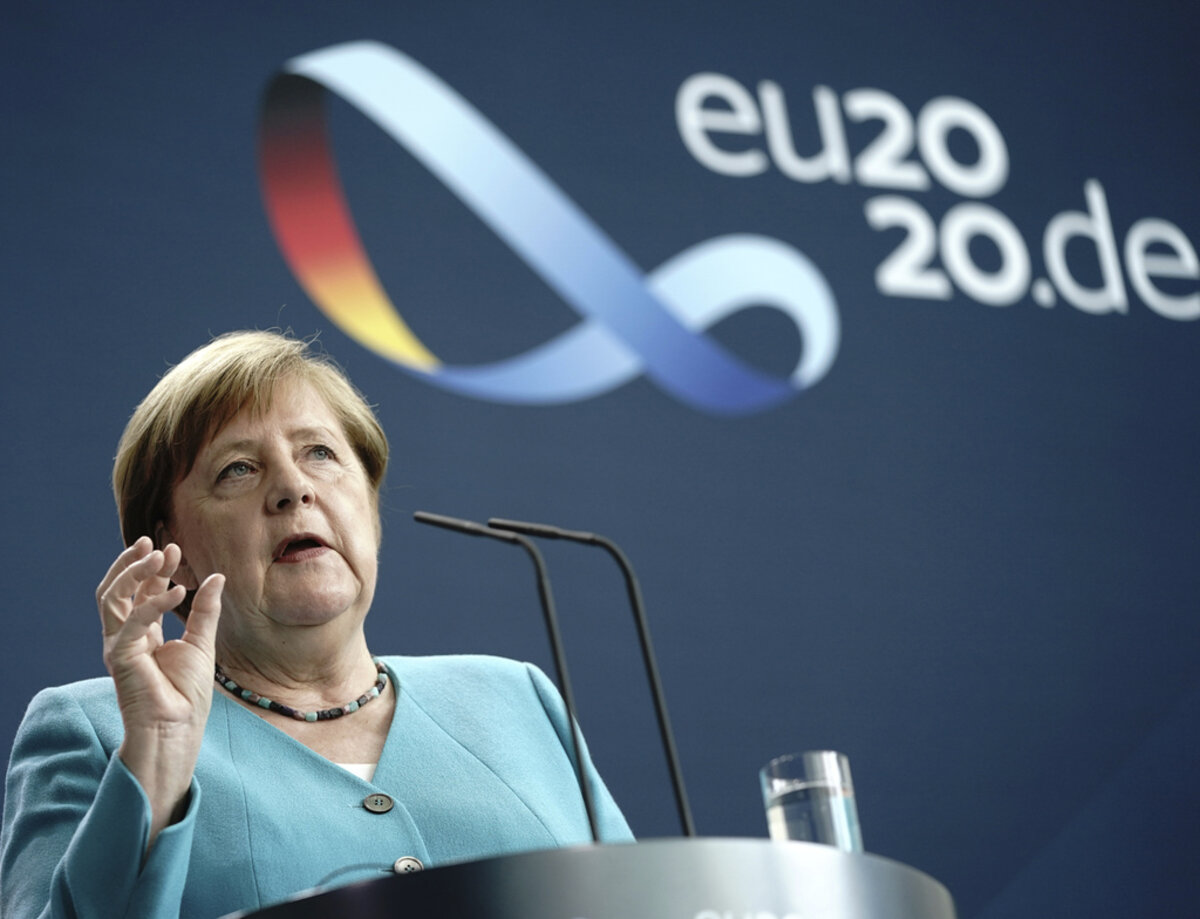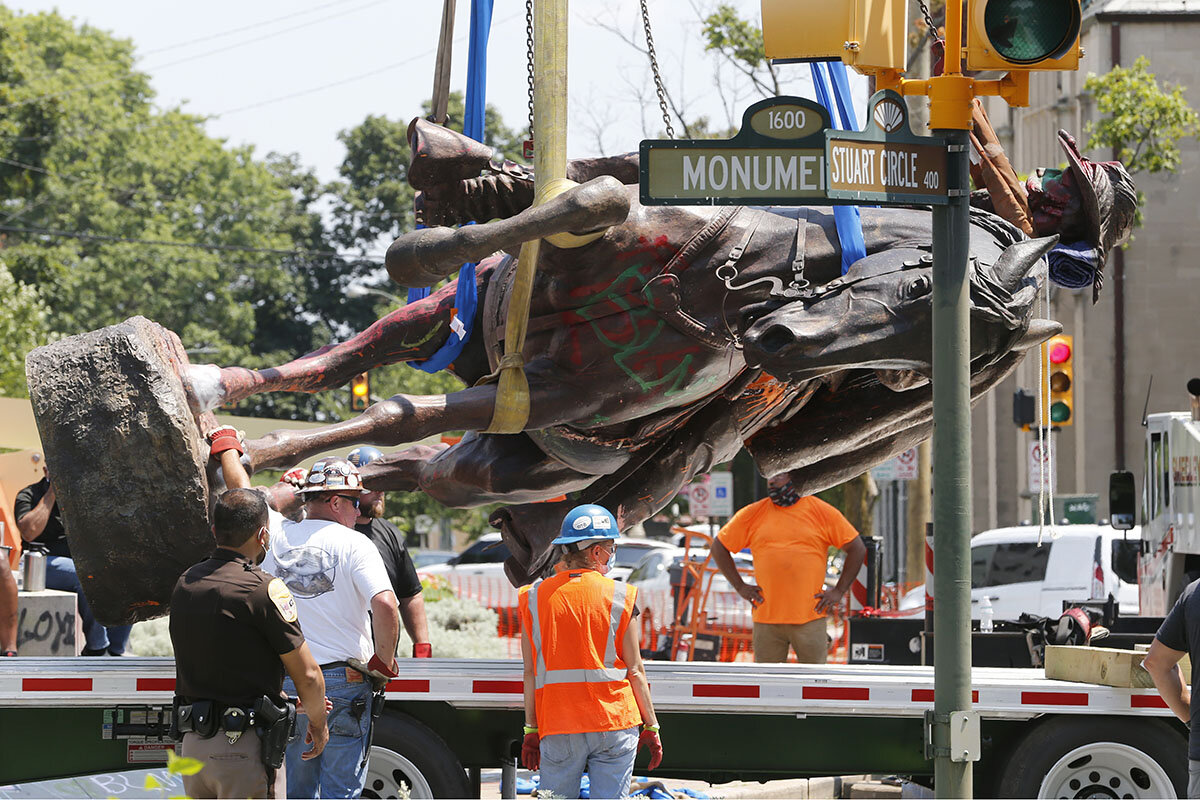Unlike some states that resisted stringent measures, California’s response to the coronavirus drew widespread praise. Its current struggles offer lessons about the pace of reopening and overconfidence born of success.
Monitor Daily Podcast
- Follow us:
- Apple Podcasts
- Spotify
- RSS Feed
- Download
 David Clark Scott
David Clark Scott
Fear. Anger. A sense of injustice.
Albany, New York, officer Sadaka Kedar Kitonyi offers a deeply-felt perspective on the racial protests in America: a Black man in blue.
About 13% of all U.S. police officers are Black. Officer Kitonyi has knelt with protesters and supports ending racial injustice, he says. But for the first time in his 12-year career he’s afraid to go to work. He’s been cursed, called racial slurs, and had an M80 tossed at him. He’s long been judged by his skin color, now he’s judged by his uniform.
I am not Derek Chauvin
I am not George Floyd
I am ME
I am compassionate and I am caring ... so why do you hate me? – I’ve given the socks off my feet to a homeless drunk who had no shoes ...
Officer Kitonyi’s June 6 Facebook post, which he gave the Monitor permission to share, is a plea to be seen as a person, not a profile. Out of uniform, he’s experienced being forced by cops to lie on the sidewalk because he “fit a description.”
I listen to rap music, I wear baggie jeans … and have tattoos all across my body ... But why do you profile and stereotype me?
It is a cry for nuance in a time of binary views, a voice for officers who operate with compassion and integrity. “I can’t walk away from being a Black man,” he said in a recent interview, “and I refuse to walk away from a job I have so much love and pride for.”










